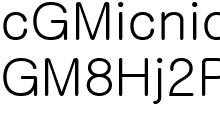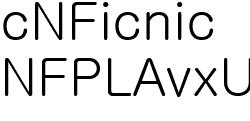ICCN Dubrovnik Workshop and 10th anniversary of UNESCO ICH Convention
The 6th ICCN Thematic Workshop was successfully held in Dubrovnik, UNESCO World heritage city, from October 2 to 6, 2013. Mayors, representatives and youth participants of 26 cities from 23 states, representatives of 8 cultural institutions, including UNESCO Headquarters participated in this event. In celebration of the 10th anniversary of UNESCO ICH convention, this year’s theme is “Youth in safeguarding the Intangible Cultural Heritage”. The workshop was composed of ICCN board meeting, workshop sessions, Youth forum and special festival.
The opening ceremony was held on October 3 at the Mistral Hall of Hotel Rixos Libertas, Dubrovnik with the presence of Mr. Ivo Josipović, President of Croatia. President Josipovic delivered his congratulatory message, confirming that “it is great honor to host ICCN Dubrovnik 2013, an international event of celebrating 10th anniversary of UNESCO ICH convention and preparing its future together with ICCN members all around the world.” Following the speech of Mayor Myeonghee Choi, the representative of ICCN and also the Mayor of Gangneung, Republic of Korea, Ms. Helena Drobna, a program specialist of Intangible Cultural Heritage Section expressed her special thanks to the active participation of ICCN members in implementing the ICH convention.
The opening ceremony was held on October 3 at the Mistral Hall of Hotel Rixos Libertas, Dubrovnik with the presence of Mr. Ivo Josipović, President of Croatia. President Josipovic delivered his congratulatory message, confirming that “it is great honor to host ICCN Dubrovnik 2013, an international event of celebrating 10th anniversary of UNESCO ICH convention and preparing its future together with ICCN members all around the world.” Following the speech of Mayor Myeonghee Choi, the representative of ICCN and also the Mayor of Gangneung, Republic of Korea, Ms. Helena Drobna, a program specialist of Intangible Cultural Heritage Section expressed her special thanks to the active participation of ICCN members in implementing the ICH convention.


Workshop participants(up), President of Croatia(Down-left), Ms. Helena Drobna(Down-right), at the opening ceremony(Oct. 3)
As the result of the board meeting, 5 cities of 5 states consisting of Jeongseon county of Korea, Xochimilco of Mexico, Levuka of Fiji, Valletta of Malta, Valparaiso of Chile were approved its full membership to the ICCN. 9 institutes and NGOs from 8 states including Promoting Israeli Amateur Performing Arts (EHEVI) of Israel, Macedonian Research Society of Macedonia, Gangneung Danoje Festival Committee of Korea, Jeongseon Arirang Culture Foundation of Korea, Center for Cultural Heritage Preservation (CCHP) of Palestine, Dialogue Association for Culture and Creativity (DACC) of Mauritania, Qatar Museums Authority of Qatar, ICH-Kuwait Committee of Kuwait and Lindjo Ensemble, Croatia were accepted as associate members of the ICCN. By now, ICCN has 40 cities from 35 states and 25 associate members.

After the opening ceremony, sessions for the workshop went along for 2 days.
The 1st session was moderated by Dr. Tvrtko Zebec, Director of Institute of Ethnology and folklore research based in Zagreb, Croatia. 4 presenters shared their cases on how developing local strategies in ICH safeguarding and local partnerships in ICH could enhance local economic development and keep youth interested and engaged. They included:
- Mayor Andro Vlahusic, Dubrovnik of Croatia, on “Dubrovnik-Safeguarding its ICH”,
- Mr. Seokje Lee, Gangneung of Korea, on “ICH is the key word of Local Development as a high-value added industry”,
- Ms. Jorijn Neyrinck, Tapis Plein of Belgium on “Handmade in Bruges” and,
- Ms. Goranka Horjan, Zagreb of Croatia, on “Project Craft Attract-Intangible Heritage Cooperation in south-East Europe.”
- Mayor Andro Vlahusic, Dubrovnik of Croatia, on “Dubrovnik-Safeguarding its ICH”,
- Mr. Seokje Lee, Gangneung of Korea, on “ICH is the key word of Local Development as a high-value added industry”,
- Ms. Jorijn Neyrinck, Tapis Plein of Belgium on “Handmade in Bruges” and,
- Ms. Goranka Horjan, Zagreb of Croatia, on “Project Craft Attract-Intangible Heritage Cooperation in south-East Europe.”
The 2nd session was focused on the “strategies in safeguarding and re-building the ICH through extraordinary circumstances that work-safeguarding the ICH under threat for generations to come.” Professor Amareswar Galla, Director of Inclusive Museum, Denmark, started this session with the presentation on Safeguarding Intangible Heritage during and after Armed Conflict. Then the session continued with 4 other presenters, including:
- Ms. Ghadeer Najjar, CCHP of Palestine, on “How Palestinian-Israeli conflict affects the local ICH”,
- Professor Elisie Ivancich Dunin, Los Angeles of USA, on “Before and after the ashes, Dance as identity in Dubrovnik’s Villages”,
- Ms. Nikolina Trojic, Dubrovnik of Croatia, on “Restoration of Cultural Heritage in Osojnik after the Homeland War” and,
- Ms. Romana Hansal, Dubrovnik of Croatia, on”Dubrovnik silk-Wartime Phoenix.”
- Ms. Ghadeer Najjar, CCHP of Palestine, on “How Palestinian-Israeli conflict affects the local ICH”,
- Professor Elisie Ivancich Dunin, Los Angeles of USA, on “Before and after the ashes, Dance as identity in Dubrovnik’s Villages”,
- Ms. Nikolina Trojic, Dubrovnik of Croatia, on “Restoration of Cultural Heritage in Osojnik after the Homeland War” and,
- Ms. Romana Hansal, Dubrovnik of Croatia, on”Dubrovnik silk-Wartime Phoenix.”
The 3rd and 4th sessions were moderated by Professor Nick Cull, Director of the Master’s in Public Diplomacy program at the center on public diplomacy at the University of Southern California, USA. Professor Cull opened the discussion with his presentation of “The future of Cultural diplomacy: The role of ICH and Youth”. The next three presenters talked about issues related to the theme of “the future of public and cultural diplomacy and the role of the ICH as its integral part and how it reflects on the local youth life prospects”. They were:
- Professor Slobodan Lang, Zagreb of Croatia, on “The culture of goodness”,
- Dr. Waleed Al Saif, ICH-Kuwait Committee of Kuwait, on “ICH-Kuwait and the Cultural Diplomacy of Kuwait” and,
- Mr. Moti Malka, Ashdod of Israel, on “International Promotion of Israeli culture.”
- Professor Slobodan Lang, Zagreb of Croatia, on “The culture of goodness”,
- Dr. Waleed Al Saif, ICH-Kuwait Committee of Kuwait, on “ICH-Kuwait and the Cultural Diplomacy of Kuwait” and,
- Mr. Moti Malka, Ashdod of Israel, on “International Promotion of Israeli culture.”
Interesting cases on the ICH and youth in cultural tourism were also discussed in these sessions. Dr. Josko Bozanic, Split of Coratia, introduced the case of traditional Boat, Story about Falkusa. 6 presentations, including ones presented by youth participants, followed:
- “Without music, there is no party” by Youth participants from Algemesi, Spain,
- “Heritage is our identity” by Mr. Charlie Rishmawi from Beit Sahour, Palestine,
- “Safeguarding ICH-Ethiopia’s experience” by Dr. Ephrem Amare from Ethiopia,
- “Water polo: part of the Dubrovnik region’s folklore” by Mr. Vinko Rozic from Dubrovnik, Croatia,
- “Little Guardians of the Heritage-The case of Xochimilco” by Mayor Miguel Angel Camara Arango and Dr. Jorge Hernandez from Xochimilco, Mexico and,
- Mr. Milo Srsen presented the case of Cultural Tourism in Croatia.
- “Without music, there is no party” by Youth participants from Algemesi, Spain,
- “Heritage is our identity” by Mr. Charlie Rishmawi from Beit Sahour, Palestine,
- “Safeguarding ICH-Ethiopia’s experience” by Dr. Ephrem Amare from Ethiopia,
- “Water polo: part of the Dubrovnik region’s folklore” by Mr. Vinko Rozic from Dubrovnik, Croatia,
- “Little Guardians of the Heritage-The case of Xochimilco” by Mayor Miguel Angel Camara Arango and Dr. Jorge Hernandez from Xochimilco, Mexico and,
- Mr. Milo Srsen presented the case of Cultural Tourism in Croatia.
Photos of sessions are followed;




As part of the workshop, all participants had a field trip to Dubrovnik Old Town, the world Heritage site, and neighboring villages. They were fascinated by the beautiful sceneries and atmosphere of the Old Town. Also, they have visited Cavtat, Konavle, and Osojnik and thus they have known briefly about the history and experiences of the region. Especially, through the Konavle national costumes, they could appreciate the culture of living local people. At the Osojnik, the whole village welcomed all participants with great hospitality. Traditional ways of living, dancing, cooking and welcoming guests of villagers have absolutely left a deep impression on workshop participants.


Every evening, special programs for the festival were organized at Stradun, Main Street of Dubrovnik old town. There were performances of Croatian and Korean ICH, including Moreska, performing children, groups from diverse Dubrovnik region and in particular, Gangneung Danoje Shaman music and Jeongseon Arirang of Korea. Both Korean intangible cultural heritage teams joined the event as celebrating 10th anniversary of UNESCO Convention. All participants, tourists and Dubrovnik citizens cheered eagerly for the value and charm of ICH preserved and presented at Dubrovnik.


This year, youth forum were totally integrated into the workshop sessions. Therefore, youth participants had the chance to learn more from experts and mayors around the world. They also shared their view and experiences more directly. This year, in cooperation with Tapis Plein, youth participant had an entertaining workshop with various activities of a character game, brainstorming exercises and a photograph assignment. Participants got to know each other and their background and how to raise awareness with youth people at home by sharing their opinions.


ICCN Dubrovnik 2013 workshop has mapped out the next step of ICCN working agenda. With the trial of associating both experts and mayors or local administrators, it was possible to have deeper discussion and strengthened capacities of both sides as they could listen to each other and share their experience and expertise in the field. Based on collected extensive opinions and successful results of this workshop, ICCN will further the Scientific Session in regular meetings in the coming years for active interaction among policy makers and experts. It is hoped that the future sessions will provide new perspectives through in-depth knowledge and active discussion among experts and policy makers in the field of ICH.
ICCN Secretariat



Follow ICCN